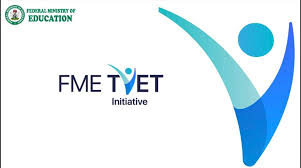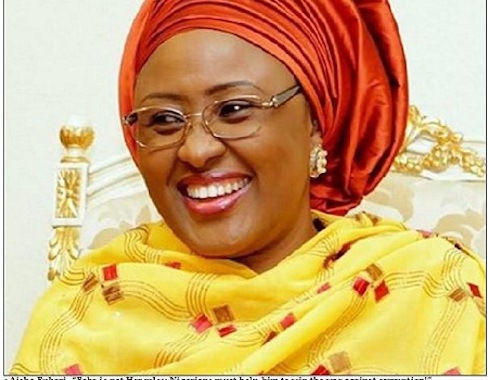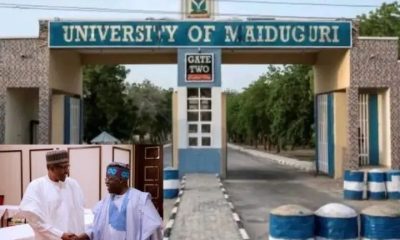Education
Buhari Awards Scholarship to Three Young Scientists

By Mathew Dadiya, Abuja
President Muhammadu Buhari Monday granted full scholarship up to the Doctor of Philosophy (PhD) degree level to three secondary students who emerged winners at the year 2020 Young Nigerian Scientists Presidential Award Competition.
The scholarship, according to the President, was in any science-related discipline of their choice at any university in the country.
President Buhari announced the award of the scholarship while declaring open the 2020 Science, Technology and Innovation Expo with the theme ”Enhancing The Growth Of A Diversified Economy Through Science And Technology”, in Abuja.
Buhari commended the creativity and competitive spirit of the three young scientists who emerged tops in the competition tagged 774 Young Nigerian Scientists Presidential Award (774 YONSPA).
The students are: Masters Akintade Abdullahi Akanbi of Osun State from Osogbo Government High School Osogbo, Osun State, who came first; while the second positions went to Uwakwe Nelson Kamsiyochukwu of Anambra State from British Spring College, Awka and Aimofumhe Eshiobomhe Sigmus of FCT from the School of the Gifted, Gwagwalada, Abuja, respectively.
The President said that Nigeria’s greatest resource was its human capital, assuring that his administration would continue to support human resource development.
He said, ”This is richly embodied in our youth who make up tens of millions of incredibly talented persons, constantly pushing and striving towards greatness. The future of Nigeria belongs to our youth.
”This Administration will therefore continue to create the enabling environment for them to develop to the fullest, their potentials.
”We will harness their energy and their talents to make Nigeria achieve true greatness,” he said.
The President reiterated the commitment of the Federal Government to partner with the private sector on science, technology and innovation sector development towards ensuring that the sector plays the very important role in advancing the frontiers of knowledge for nation building.
”Government will continually support the creation of intervention funds to strengthen research and development, human capacity building programmes and collaboration with the organized private sector.
”We will continue to work towards the realisation of the National Research and Innovation Fund. I am aware, this Fund will help promote research activities in our country.”
He therefore, directed the ministers of science and technology to create the needed opportunities to ensure that Nigerian scientists work towards providing solutions to the nation’s challenges of insecurity, unemployment, poverty, healthcare delivery and power, among others.
The President affirmed that if Nigerian potentials in the Science and Technology Sector are properly harnessed, with the enabling environment created, 100 million Nigerians will be taken out of poverty in the next ten years.
”This remains my aim for Nigerians,” he stressed, noting that Nigerians at home and abroad have always demonstrated remarkable ingenuity and inventiveness and with the right environment, and policy framework, there is no limit to how far Nigerian innovation can go.
”A prime example of an outstanding Nigerian is Mal. Jelani Aliyu, who is now Director-General of the National Automatic Design and Development Council.
”Malam Jelani designed the General Motors of America’s leading auto brand the Chevrolet Volt. Now he is assuring Nigerians that all the cars that took part in Argungu Motor Rally were assembled in Nigeria,” he said.
In his remarks, the Minister of Science and Technology, Dr Ogbonnaya Onu thanked the President for the many efforts in promoting STI, including recognizing the sector as being at the centre of all economic activities under the Economic Recovery and Growth Plan (ERGP) 2017-2020.
The Minister said that in the last six months of the second term of President Buhari, the STI sector helped create over 900,000 jobs while data from the National Bureau of Statistics (NBS) show that Nigeria saved over N1 trillion in the importation of raw materials in both 2017 and 2018.
”The data for 2019 is yet to be released. Patents from scientists and engineers, who passed through the National Office for Technology Acquisition and Promotion (NOTAP), an agency under the supervision of the Federal Ministry of Science and Technology, have continued to increase.
”In 2015, the first year of the Buhari administration, it was only six. In 2016; it was 16, 50 in 2017, 55 in 2018 and 57 in 2019,” he said.
As the Covid-19 crisis spreads across the globe, Dr Onu declared that what is happening around the world is a wake-up call to intensify efforts to manufacture goods locally and patronize made-in-Nigeria products.
”The Presidential Executive Order No. 5 and the National Strategy for Competitiveness in Raw Materials and Product Development in the country already passed by the Federal Executive Council will help in realizing this noble objective,” he said.
Education
Unresolved Renegotiation: ASUU Sets For Another Showdown With FG

From Ene Asuquo, Calabar
As a result of the unresolved renegotiation between Academic Staff Union of Universities and the Federal Government of Nigeria, the Union has sent a message of
Imminent danger to industrial harmony in Nigerian University system.
In a press statement in Calabar, ASUU has warned that they would embark on an indefinite strict action in a few days to come because of federal government’s insincerity in keeping to terms after the 14-day warning strike and another four weeks of grace was given which will expire on the 21st of November 2025.
According to them, “We have gathered not merely as members of ASUU, but as citizens whose patience has been stretched far beyond its elastic limits.
Occasioned by broken promises, shattered dreams, and deepening crises in the education sector, we hereby express deep concern over government’s inconsistency and dilatory approach to agreements, engagements and negotiations”.They stated that the renegotiation of the 2009 FGN/ASUU Agreement was not a gift. It was an obligation to Nigerian University Lecturers. Government owes Lecturers their due wages and her citizens and the dignity of decent and functional education.
They maintained that the fight is for the survival of Nigeria’s intellectual soul, while outlining the issues in contention to include: renegotiation of workers’ Conditions of Service since 2009 in tandem with changing times and inflationary trends over the years, funding for revitalization of infrastructures, University autonomy, academic freedom, undue proliferation of Universities without assured sustainable funding.
The Union stressed further that Government grandstanding, insensitivity and silence are deliberate to destroy academic system and ASUU is ready to shut down totally and completely in a few days.
Recall that ASUU gave the FGN 14-day ultimatum to conclude the renegotiation which according to them was enough to made government do the needful and they watched to no avail. ASUU then graduated to 2 weeks Warning Strike, which was suspended after NEC of 22nd October, 2025 due to the intervention of well-meaning Nigerians, the Nigeria Labour Congress, parents and students to create enabling opportunity for a meaningful dialogue.
“Let the Federal Government return to the path of truth, fairness and good conscience. Let the government hear us clearly: they cannot destroy public education, starve lecturers with a slavish salary, deduct and withhold part of legitimate Lecturers salaries by way of 3rd party deductions, deny students a conducive environment for effective learning and expect peace”.
“ASUU has been consistent: we are not asking for personal enrichment. We are demanding that the government fulfills its obligations to the Nigerian people by funding education properly, otherwise, we shall resume the STRIKE itself; not the father or mother of all strikes”.
“This will be a total, comprehensive and indefinite strike action. We are ready to shut down for as long as the government wants it to last because he who has been pushed down fears no fall Education is the foundation of personal and national development,” the stated.
“The problem is not paucity of funds as the government posits but lack of political will to invest in the development of Nigeria. The figures and empirical data from Federation Account Allocation Committee (FAAC) has revealed that in 2022, States received N3.02 trillion while in 2024, the figures rose to N5.81 trillion with an increase of over 62%. Similarly, federal allocations rose from N3.42 trillion in 2022 to N4.65 trillion with an increase of over 70%. This is clear evidence that the government has the capacity to pay Lecturers”. They maintained.
Education
TVET: FG Begins Nationwide Training for 100,000 Youths in 1,500 Centers

The Federal Government has begun training no fewer than 100,000 youths in 1,500 Technical and Vocational Education and Training (TVET) centers across the country.
The Minister of State for Education, Prof. Suwaiba Sa’id, made the announcement on Monday in Kano.
This was during an inspection visit to Bayero University, Kano (BUK), where Sa’id assessed ongoing vocational training initiatives supported by the ministry.
“The administration is committed to expanding opportunities for our youths to acquire industry-relevant skills that will make them self-reliant and employable,” she said.
The minister said that the programme covered a wide range of trades including carpentry, welding, plumbing, ICT, automobile repair, tailoring, among other skills in high demand.
She said that the initiative was designed to ensure that beneficiaries of the programme became self-reliant, job creators and active contributors to the nation’s economic growth.
According to her, the provision of starter packs will complement the government’s drive to reducing unemployment and addressing the persistent skills gap in the country.
“The administration of President Bola Tinubu is committed to strengthening technical and vocational education because it remains a critical pathway to empowering young Nigerians.
“Providing starter packs will enable our youths to put their training into practical use immediately,” she said.
Sa’id commended BUK for its commitment toward implementing the programme.
She said that the ministry would continue to partner institutions that promoted innovation, productivity and entrepreneurship.
Also speaking, the Vice-Chancellor, BUK, Prof. Haruna Musa, said the programme was timely as the country continued to grapple with low employability, reduced productivity and slow economic growth.
Those, he said, were due to inadequate skills among its youth population.
Musa was represented by the Deputy Vice-Chancellor (Academic), Prof. Ahmad Tsauni.
He said the programme was designed to equip young Nigerians with practical and entrepreneurial skills that would enhance job creation, innovation and national development.
Musa encouraged participants to take full advantage of the opportunity by learning diligently and transforming themselves into agents of positive change in their communities.
“BUK will continue to invest in research, innovation and strategic partnerships to expand opportunities for youth employment and industrial growth,” he said
The vice-chancellor commended the Federal Ministry of Education and other partners for their support in ensuring the successful take-off of the programme.
A beneficiary, Muhammad Ali lauded the government for, what he described as, the timely gesture.
He expressed appreciation, describing the initiative as a crucial step toward youth empowerment and national development.
Education
Mainstream Energy to Upgrade ABU Roads, Facilities

Mainstream Energy Solutions, a privately-owned power-generating company, has offered to support infrastructure renewal at the Ahmadu Bello University (ABU), Zaria.
This was disclosed in a statement issued on Saturday in Zaria by the Director, Public Affairs Directorate of the university, Malam Auwalu Umar.
He said the company also announced plans to partner with the institution on its 45th convocation scheduled for January 2026.
According to him, the form has also pledged to assist in the upgrade of the university’s internal roads, most of which were constructed in the 1960s and have never been rehabilitated.
“The institution’s nearly 30 kilometres of internal roads across its two campuses are currently in a state of near collapse.
“The company also indicated readiness to support the rehabilitation of toilets and improvement of water supply on the campuses.
“As part of preparations for the convocation, the company will give the 1,000-seater Abdullahi Mahadi Conference Centre a facelift ahead of the convocation lecture,” Umar said.
He quoted the Vice-Chancellor, Prof. Adamu Ahmed, as expressing deep appreciation for what he described as a long-standing and growing partnership since 2017.
He recalled paying a courtesy visit to the company in Abuja earlier in the week to thank it for its sustained support.
He stated that mainstream energy’s interventions had consistently come at crucial moments, especially when the university’s energy cost escalated to an unsustainable N370 million in May 2025.
Ahmed said the university was particularly excited about the company’s plan to replicate a Kainji Dam-model power plant at ABU’s Faculty of Engineering; a project expected to revolutionise practical training and research.
He also described as “a powerful demonstration of belief in the future of Nigerian youths” the firm’s decision last week to convey 20 ABU students via chartered flight to the Kainji facility for a hands-on excursion.
“Mainstream Energy Solutions has truly set a benchmark for industry-academia collaboration in Nigeria, aligned with national development goals,” Ahmed said.




























